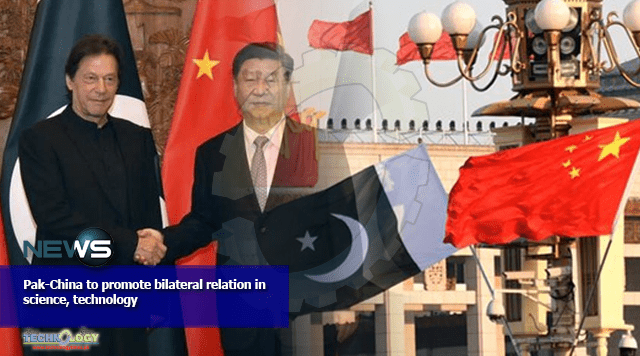Pak-China to promote bilateral relation in science, technology
The Torch Hi-tech Industry Development Centre of the Chinese Ministry of Science and Technology (MoST) and the officials of COMSATS, Islamabad are keen to promote bilateral cooperation in the field of science and technology.
Both sides held a virtual meeting for the establishment and management of Science and Technology Park in Pakistan.
Also Read: Contractors moving to Diamer-Bhasha Dam site
Recently Director Torch Centre Division of International Cooperation Mo Tan asserted that China has always prioritized` anything related to Pakistan’ and aims to continue cooperation in any suggested field. He invited Pakistani officials to learn from Chinese knowledge and experience in the planning and management of industrial units, according to China Economic Net (CEN) on Wednesday.
Besides economic and infrastructure development under the China Pakistan Economic Corridor (CPEC), China is working also on the promotion of health and education sectors, in Pakistan with focus on building schools infrastructure, health facilities, providing more and more scholarships to the Pakistani students and providing skill development pieces of training.
Under CPEC, the most important intellectual exchange will be brought under research and development in science and technology. Pakistan lacks behind the participation of its youth in this specific position, which is going to be very important soon in terms of security and seeking information about the world.
The health sector under CPEC includes medical facilities for the local population whereas the education sector includes the building of universities for professional education, the establishment of various research and development wings, and technical education and training for building manpower.
Previously the Rs 2.048 billion assistance to facilitate completion of a smart university project was initiated to introduce youth with advanced digital technologies at the university level. Out of the total of 124 public universities, and 400 smart classrooms, 50 public universities, and 200 classrooms will be established in the first phase of the project.
After the implementation of the project, Pakistani universities will enhance their capacity for distance learning. This capability may also be utilized during and after the COVID-19 pandemic is over.
It will bring a revolution in the education sector of Pakistan in the short to medium term. There exist a considerable thirst and demand for distance learning among the young and middle-aged people of Pakistan.
CPEC has also been a source of providing medical students in Pakistan the education facility in China. Almost 10,000 students have already graduated and working in different fields. Also over 2,00,000 students from 64 countries have been getting education via government scholarship programs.
However, Pakistani students have been the most in number, ranking at the top fourth of all international students in China.
In the future, CPEC should facilitate the setup of new medical colleges and universities, state-of-the-art R&D labs, and pharmacies along CPEC.
With so much advancement in technology, there is also urgency of establishing departments of information technology on the pattern of Chinese universities, which have achieved the height of information technology in military technology, drone technology, stealth technology, and now have set eyes over the space technology.
Similarly, the departments of biotechnology and medical research also need special assistance. Thus, CPEC is a complete package for participation and development in multiple sectors for the Pakistani youth and for the future generations.
It completely depends on the potential of the Pakistani government in discovering those new arenas of growth, and the related ministries, academia, students, and all stakeholders to get maximum profits of CPEC’s second phase.

